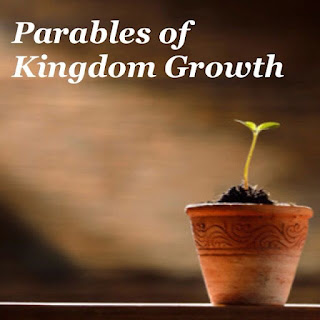In one sense, Jesus is already King. In another sense, he needs to become King. The kingdom of God can refer to the age to come:
We read, "When the Son of Man comes in his glory, and all the angels with him, then he will sit on his glorious throne. Before him will be gathered all the nations, and he will separate people from one another as a shepherd separates the sheep from the goats. And he will place the sheep on his right, but the goats on the left. Then the King will say to those on his right, “Come, you who are blessed by my Father, inherit the kingdom prepared for you from the foundation of the world." Matthew 25:31-34
The gospel story does not use fancy words about justice and solidarity, but speaks of practical love in the shape of shared food, clothing, something to drink, protection from elements. It directs compassion that helps people in need.
There was a preacher in 19th century Scandinavia who, in the vestry one Sunday morning, heard that the King would be present at worship. Understandably rattled he ditched his well prepared sermon and spoke on and on about the Christian virtues of their King. Even though the King said nothing after the service the preacher could not help but wonder if he would receive some reward for his loyal support. Sure enough some time later a very large crate was delivered to the Church. Immediately the priest concluded that his reward had arrived. He open the crate to find inside a life sized crucifix.
He could hardly contain his disappointment "We’ve got lots of crucifixes already," he thought. As he looked inside the crate he saw a letter under the royal seal. Excitedly he opened it. The letter contained the kings instructions as to the placement of the crucifix in the Church. It was to go on the western wall of the Church so that the preacher would always be reminded of which king he should be speaking. King Louis XIV of France, see attached, “There are two hundred and fifty-six names given in the Bible for the Lord Jesus Christ, and I suppose this was because He was infinitely beyond all that any one name could express.”
God, our kind and loving Father,
you no longer call us servants but friends.
There is so much you have entrusted to us,
even the future of your kingdom of justice and love.
Give us the grace to work out with you
the growth of mercy and goodness in this world,
to be united with all Christians
and with all who seek you with a sincere heart
in bringing reconciliation and joy to everyone.
Let us go together the way to you,
our living and loving God,
through Jesus Christ our Lord.
Amen.










